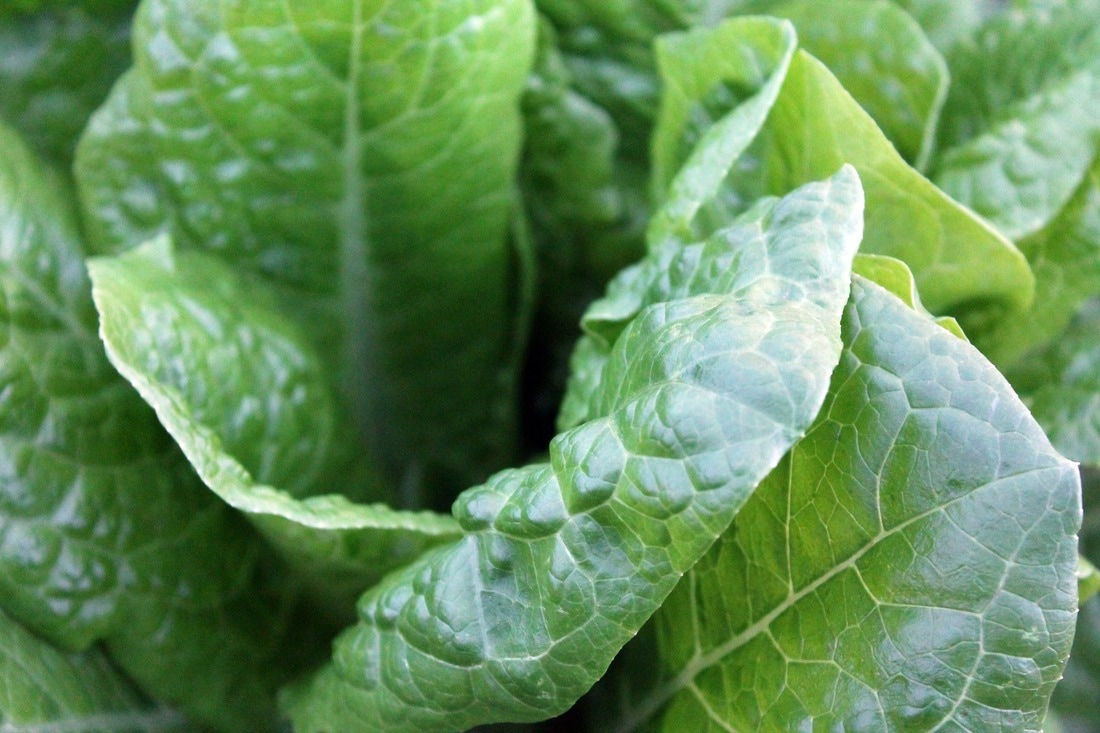|
Some of you may have heard that a number of companies have switched from using folic acid to methylated folate in their prenatal supplements. We thought we would explain what the difference is and why it matters which form you take it in.
What’s the difference? Folate is a water soluble group of B vitamins (also known as vitamin B9) these are naturally occurring and most commonly found in green leafy vegetables, eggs and liver. Folic Acid is the synthetic oxidised version of this and is commonly found in supplements and used to fortify foods. Why do we need it? Folate is necessary during rapid cell division and growth which unsurprisingly means that we double our requirement for it during pregnancy. Inadequate folate levels are also associated with the following:
So why does it matter which form I take it in? In order to convert folic acid into the folate that we need, it has to undergo reduction and methylation in the liver. Unfortunately, around 40% of the population have methylation issues particularly those with an MTHFR SNP (Methyltetrahydrofolate Reductase Single Nucleotide Polymorphism). Therefore, to ensure you are getting enough folate it would be preferable to supplement with bio-available folate rather than folic acid to ensure you are getting what your body needs. Are there any other benefits? A study by Bentley et al, found that mothers who supplemented with folate, compared with those taking folic acid, had increased haemoglobin levels at the end of the 2nd trimester and at delivery and that cases of anaemia were lower. Other defects such as cleft palate and tounge tie are also being linked to MTHFR and poor methylation. Therefore, supplementing with folate may help reduce the occurrence of these conditions (although genetics has its role to play). Is it only pregnant women who need to be aware of this? Folate deficiency has been found to be high in a range of psychiatric disorders including depression, dementia and schizophrenia. Epileptics taking anticonvulsants are very often low in folate as these drugs inhibit folate absorption. As mentioned above elevated homocysteine levels are a risk factor for cardiovascular disease and stroke. Therefore people at risk of these conditions due to symptoms such as hypertension or those with a family history of cardiovascular disease may wish to consider supplementing with methylated B vitamins. You may also want to consider asking your GP for a homocysteine blood test to assess your risk. Which foods should I increase to provide folate? Dark leafy greens are tops such as spinach and romaine lettuce. In fact the word folate actually comes from the latin word 'folium' meaning foliage, so it's no surprise that the leafy stuff is going to be an excellent source. Also broccoli, cauliflower, sprouts, beans, peas, lentils, nuts and seeds, avocado and asparagus give good amounts. Citrus fruits are also high in folate along with papaya. In short, as long as you eat a goodly array of vegetable and fruits and really emphasise the green varieties you will boost your folate levels well. What you may be less aware of is that liver also gives us an excellent source of this valuable nutrient. (Testing for MTHFR SNPs and other genomics testing is available through our clinic. Homocysteine testing is also available and allows us to optimise your B6, B12 and folate to maintain health promoting levels, reducing risk factors for disease and also to optimise fertility and healthy pregnancy for mum and baby. Enquiries through [email protected]) More on our support for Fertility here References: http://onlinelibrary.wiley.com/doi/10.1111/j.1753-4887.2007.tb00275.x/abstract https://www.ncbi.nlm.nih.gov/pubmed/21440300 https://www.ncbi.nlm.nih.gov/pmc/articles/PMC3250974/#B2 https://academic.oup.com/aje/article/157/7/583/69692/Does-the-Interaction-between-Maternal-Folate https://www.ncbi.nlm.nih.gov/pubmed/2682787 http://ajcn.nutrition.org/content/77/2/467.abstract
0 Comments
I am one of those strange women who, if she knew nothing else about what she wanted from life, it was that she wanted children. However, when my husband and I started trying it wasn't all plain sailing. We decided just to go for it but not to put any pressure on ourselves - if it happened then great, if not we would try again next month. I'd always had a slightly longer cycle than normal but around the same time as we started trying, they started to get longer and longer until they stopped completely. My weight also increased although I hadn’t changed my diet and have always eaten well. I had also noticed that I had started to develop acne out of the blue and facial hairs started popping up which was very distressing. Eventually I took myself off to the GP and got checked out. Sure enough I was diagnosed with Polycystic ovaries syndrome (PCOS). Well, I felt like all the wind had been knocked out of me. The one thing I longed for more than anything in the world and I felt like I had lost my chance. Of course I hadn't and PCOS is by no means the end of the road but at the time I just felt devastated. PCOS is strongly linked to insulin resistance and the doctor offered me metformin and hormone treatment. I decided I didn't want to go that route as I'm the kind of person who sees drugs as a last resort and would rather try something natural first. First stop was to the most knowledgeable person I know when it comes to natural health my mum! I was relieved to hear that I could manage my condition without pills and with a few changes to my diet I should be back on track in a few months. The first thing I did was to deal with food intolerances which had been a driver in my weight gain. In addition I knew that the insulin like growth factor in milk plays right into the hands of insulin resistance and hormonal imbalance. I also avoided refined carbohydrates in my diet (not that I'd eaten many before) and focussed my meals around a low glycemic index approach. This meant mainly meat/fish and veg, in fact good old fashioned cooking! Of course I still treated myself to the odd slice of gf/df cake, after all food is to be enjoyed! But on the whole I was good and followed mum's advice. There are supplements you can take to support this transition and make it easier as you can support your blood sugar control, cravings and other needs. Because PCOS often overlaps with other conditions, this can vary according to your own history. In my case I already had underactive thyroid and IBS. Underactive thyroid is often associated with PCOS due to the sluggish metabolism, weight gain and resulting insulin resistance. Whatever else you may need to include into your own protocol, chromium is my favourite! (However, check for drug nutrient interactions before taking anything and ask your clinically trained Nutritional Therapist what is right for you.) After my diagnosis in August I was delighted when by October my periods had returned and the extra weight I had put on was starting to drop off. It was like peeling off a fat suit and I began to recognise myself again. As you can see from the photo below taken at a dear friend's wedding before I made some simple lifestyle changes I was very inflamed.
If you would like more advice regarding blood sugar management, thyroid support, PCOS or fertility you've found your way to the best place. Nourishing Insights' team of Nutritional therapists are clinically trained and specialise in Women's hormones with advanced training and postgraduate training in fertility. Our no stone left unturned approach is first class and we have a range of functional tests including comprehensive hormones to support you. More on fertility here
Last week we covered Probiotics in Pregnancy and touched on how supplementing babies can help reduce the incidence of eczema and other allergies. But what about other common complaints in infancy? Can probiotics help there too? Let's look at some of the usual suspects: Colic is something that has troubled parents forever! The worst thing about colic is that we don't really know exactly what causes it. Having said that, anyone who has ever tried to comfort a colicy baby knows it's usually tummy trouble so trying a probiotic would make sense. A recent study now shows that introducing a probiotic has seen crying in infants fall by at least 50%. Another nightmare for new parents is reflux. (Not to be confused with 'happy pukers' it's totally normal for breastfed babies in particular to guzzle a little too much and then puke out the extra. It's part of their self regulation and why there is now a link between breastfeeding and reduced childhood obesity. If baby seems fine after they vomit you've probably got one of these!) Probiotics can be helpful here too. An Italian study has shown that probiotics can increase gastric emptying and therefore decrease the frequency of regurgitation. Constipation is also a common digestive problem in small children. Studies have shown that taking a probiotic can increase stool frequency and improve the consistency of stools. It has also been found to reduce the frequency of faecal incontinence and significantly reduce tummy pain. Severity and duration of boughts of diarrhoea have also been reduced by taking a probiotic. One finnish study found that the probiotics successfully colonized the gut and reduced the duration of watery diarrhoea usually associated with the rotavirus. In the ProChild study children were given either a placebo or Proven's Fit for School probiotic for six months. Children taking Fit for School had:
If you would like to know more or to discuss your probiotic needs with Beverley our registered Nutritional Therapist just pop into the shop: Nourishing Insights, 44 St Andrew Street, Aberdeen, AB25 1JA. References: A. Bird Schreck et al. (2016) Probiotics for the Treatment of Infantile Colic: A Systematic Review. Journal of Pharmacy Practice p1-9. F.Indrio et al. (2011) Lactobacillus reuteri accelerates gastric emptying and improves regurgitation in infants. European Journal of Clinical Investigation. 41(4) p 417-422. N. Bekkali et al. (2007) The role of a probiotics mixture in the treatment of childhood constipation: a pilot study. Nutrition Journal. 6(17) M. Tabbers et al. (2011) Is Bifidobacterium breve effective in the treatment of childhood constipation? Results from a pilot study. Nutrition Journal. 10(11) A.V. Shornikova et al (1997) Bacteriotherapy with Lactobacillus reuteri in rotavirus gastroenteritis. The Paediatric infectious disease Journal 16(12) p 1103-1107. I. Garaiova et al. (2015) Probiotics and vitamin C for the prevention of respiratory tract infections in children attending preschool: a randomised controlled pilot study. European Journal of Clinical Nutrition. 69 p.373-379. Last week we looked at the power of probiotics and the fact that we get our good bacteria from our mother when we are born. As the baby travels down the vaginal canal the baby is covered in secretions which contain their mother's flora. This is then swallowed by the baby and that bacteria colonizes their gut and forms the beginning of their immune system. This is why "seeding" (taking gauze soaked in this fluid and wiping it on the babies face) is becoming increasingly discussed as a way of getting that first colony into the baby after a C-section.
Think you don't need to take one? Let's look at some of the things that compromise gut flora. - Birth Control (Most women are on this prior to falling pregnant.) -Antibiotics (many women suffer with UTI's during pregnancy). -Antacids (how many women do you know who slept with rennies by the bed and spent the last trimester knocking back the gaviscon?) -Pesticides (Unless we eat an entirely organic diet, most of us are exposed to these through the diet). -Household Cleaning products (One word....Nesting!!) -The list goes on! Still not convinced? Well let's look at the benefits of taking probiotics for you and your baby both in vitro and beyond. A 2010 Scandinavian study showed that probiotics significantly reduced the risk of Gestational Diabetes and that coupled with proper nutritional support reduced the risk of foetal overgrowth associated with it. This of course has the knock on effect of reducing the need for medical intervention during delivery. A further study has shown that in addition to reducing hypertension (high blood pressure) and inflammation, intake of probiotics also significantly reduces the risk of pre-eclampsia and spontaneous preterm delivery. Those who took probiotics daily had the lowest risk factors when compared with those who consumed them only weekly or monthly. Taking probiotics prior to giving birth and then giving them to the infant for the following 6 months has been shown to reduce the incidence of eczema. The Swansea Baby Trial supported these results. Babies given Lab4b (the probiotic used in the Proven range) were 57% less likely to develop allergic eczema than those receiving the dummy product. It also showed that children whose mothers had probiotics in the last trimester along with taking them for the following 6 months were 44% less likely to develop allergic reaction to the common allergens including pollen, cow’s milk, egg, and house dust mite. The Swansea study also concluded that probiotics are safe and that taking them had no adverse effects to mum or baby. A Study from MIT has also showed that supplementation with probiotics increases the production of love hormone oxytocin. This in turn leads to increased immunity with the infant exhibiting robust skin and mucosae, rapid wound healing and resistance to infection. If you would like more information or to find out which probiotic is the right one for you pop in and see us. Nourishing Insights, 44 St Andrew Street, Aberdeen, AB25 1JA. References: https://www.umcg.nl/EN/corporate/News/Paginas/Antacid-use-dramatically-reduces-healthy-gut-microbial-flora.aspx http://lab4probiotics.co.uk/the-swansea-safety-in-newborns-study/index.html http://lab4probiotics.co.uk/the-swansea-baby-trial/index.html R.Luoto et al. (2010) Impact of maternal probiotic-supplemented dietary counselling on pregnancy outcome and prenatal and postnatal growth: a double-blind, placebo-controlled study. British Journal of Nutrition. 103 p. 1792-1799. A. Brantsaeter et al. (2011) Intake of Probiotic Food and Risk of Preeclampsia in Primiparous Women: The Norwegian Mother and Child Cohort Study. American Journal of Epidemiology. 174 (7) p.807-815 K. Kukkonen et al. (2007) Probiotics and prebiotic galacto-oligosaccharides in the prevention of allergic diseases: a randomized, double-blind, placebo-controlled trial. Journal of Allergy and Clinical Immunology. 119(1) 192-198. S.E. Erdman and T.Poutahidis. (2014) Probiotic ‘glow of health’: it’s more than skin deep. Beneficial Microbes. 5(2) p. 109-119. M.Murray &J.Pizzorno (2012) The Encyclopedia of Natural Medicine. Atria. New York. |
Amazon Associates DisclosureNourishing Insights is a participant in the Amazon EU Associates Programme, an affiliate advertising programme designed to provide a means for sites to earn advertising fees by advertising and linking to Amazon.co.uk. Archives
December 2023
|
WHAT OUR CLIENTS ARE SAYING“I did Nutritional Therapy with Beverley and it was life changing. I highly recommend it!” Allison Blakely (Glasgow)
|
Contact Us |








